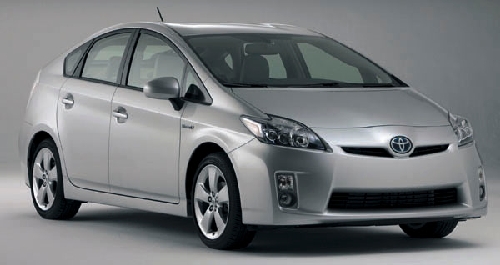Drivers also at blame for pollution
For whatever reason, at least when it comes to new vehicles, governments have homed in on fuel economy as their ecotarget. Important, yes, but sadly, just one very tiny piece of the puzzle.
It's a shell game, really. Cars that pollute less are important, but drivers that pollute less are even more important.
Since climate change is top of mind, and carbon dioxide is linked to it, governments want to cut back on the gasoline. That, of course, makes sense. It's as easy to grasp as this: If you could improve fuel economy by 10 percent, carbon dioxide emissions - CO2 - would be reduced by 10 percent. Just how much CO2 does your car put out? It would take just 126 gallons - about eight tanks - of gasoline to completely fill the Washington monument at 555 feet tall, by 55 feet wide and 55 feet deep. Assume a 25 mpg fuel economy and 126 gallons covers about three months of driving. That's a lot of CO2. If your vehicle averages 15 mpg, you're filling up the ol' monument in less than two months.
But remember, governments are all about being popular. So, by hitting big business and targeting fuel economy, the easiest possible target it could find, is government really serving you, or is it merely trying to appear to be doing something about the problem for voters so that it can get re-elected?
Improving fuel economy is important. But our vehicle use is surely the biggest overriding factor when it comes to CO2 emissions and the money coming out of our pockets. Consider that if you had no reason to ever drive, your vehicle would emit no carbon dioxide out the tailpipe, ever ... at all. Put in perspective, it makes all this scrapping for slight increases in fleet-fuel-economy averages seems to be missing the point.
Take Vehicle 1, a car that gets 40 mpg, and compare it to Vehicle 2, one that gets 10 mpg. Obviously, 40 is better than 10. But if the driver of Vehicle 1 logs 50,000 miles in a year and the driver of Vehicle 2 logs just 5,000, which driver is the bigger polluter? Suddenly, you discover the most important factor of pollution: driver use. But, governments won't get re-elected if they start telling you that you have to cut the miles you drive by 10 percent or 20 percent or by half. No, not even if it would make the single biggest difference to tailpipe emissions, it looks better to voters to tell automakers to increase the fuel economy of their cars.
So, I really get my back up when people with three vehicles who drive two hours to work every day start going on about automakers needing to cut down on greenhouse gas. Aside from being hypocritical, it ignores the big issue: our use.
It's sad that we've dialed out common sense and have instead relied on government - which, I hate to sound like a broken record, has the vested interest of being popular to get re-elected - to tell us what's good and bad.
Government will not meddle this far into your personal life (because it wants your votes) that includes your vehicle use.
So, to substantially reduce CO2 emissions, we must govern ourselves, because no one else is going to do it. Governments won't limit you because they want your vote. It's easier for them to look like a hero by going after big business even if the solution is staring us in the mirror.
Just look at the past "Cash for Clunkers" program for proof. It was giving you $3,500 toward a new vehicle that gets 4 to 9 mpg better than your old car or the government would cough up $4,500 if the improvement was 10 mpg better or more. Wow, free money for a new car! The government looks like a hero and we all believe we're doing our part for the environment. But are you really doing your part if you just keep on driving 2,000 miles a month? Remember, you pollute by driving. Cars can't produce tailpipe emissions without you behind the wheel.
And CO2 is just one issue that's tied to high use. There's more frequent tire replacement when more miles are traveled, more road wear (which is fixed with oil-based asphalt), and, most importantly, more frequent vehicle replacement.
It's sad that while governments hand down strict new emissions and fuel-mileage regulations with automakers spending billions of dollars and precious resources to meet them, that we, the people who can make the most difference, just keep doing what we're doing. It's not enough to just blame ourselves. Let's take responsibility and do something about it. Challenge yourself to improve your driving habits, to improve economy and reduce CO2 emissions, and challenge yourself to cut your miles traveled.
Among her numerous accomplishments, Courtney Hansen is the author of her own book, the host of Spike TV's "Power Block," the former host of TLC's "Overhaulin' " and a writer with Wheelbase Media. You can email her by logging on to www.shiftweekly.com and using the contact form.















